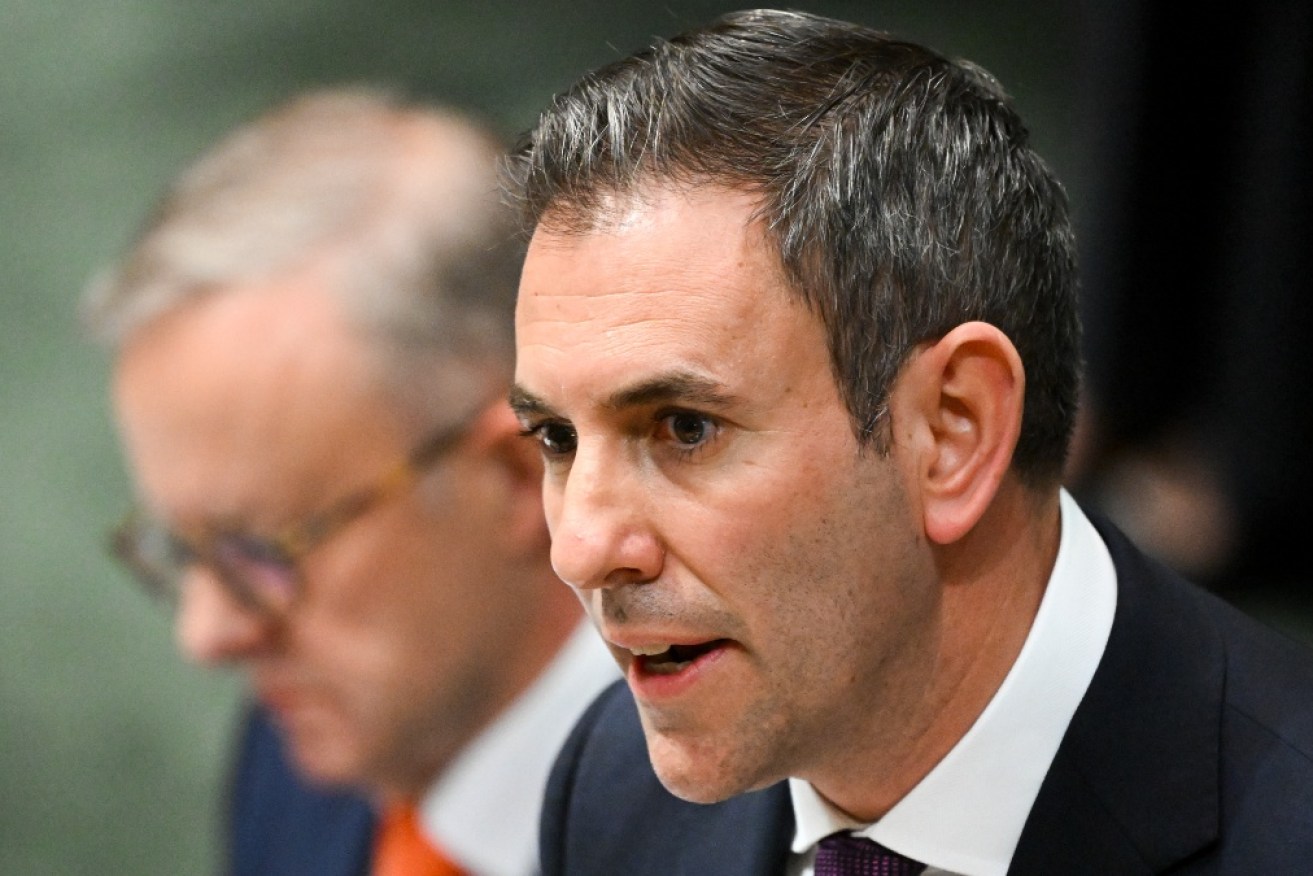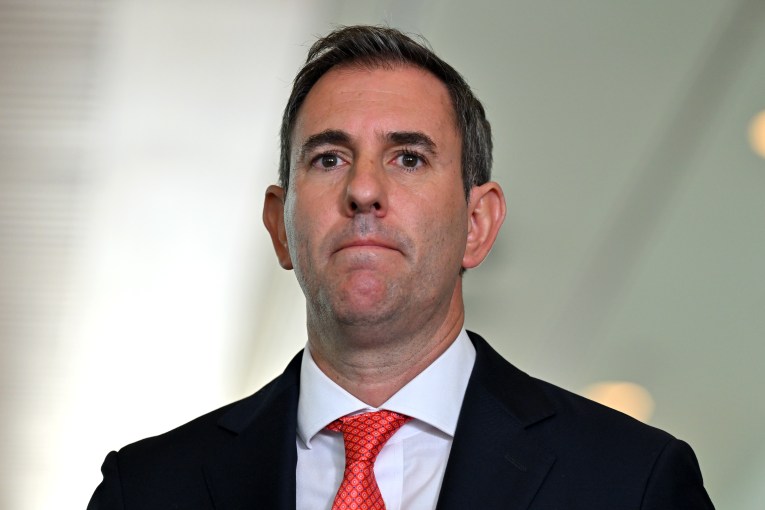Michael Pascoe: When everyone knows what’s needed, but none is game


Treasurer Jim Chalmers has found himself in a tough spot of political bother. Photo: AAP
Here we go again. Everyone involved or just vaguely interested in public policy knows we need some serious tax reform, that we will be poorer without it – but there’s no sign of anyone with the ticker to do it.
The problem with real reform is that just about every vested interest group would be unhappy with some aspect of it, fuelling a media barrage against anyone attempting it.
Achieving real change requires either a crisis or charismatic leadership or both. There’s no sign of either, yet.
So the Albanese/Chalmers government is kicking that particular can down the fiscal road, hoping Australia continues to be lucky (how good are trade surpluses and low unemployment?) while the political waters are tested with a “national conversation” over this term.
Mr Albanese further tied his own hands with the election promise not increase tax this term and keeping the stage three tax cuts.
As Michelle Grattan has nicely explained: “The government is squeezed by the promises it made (to remain a small target in order to get elected), the risks in breaking its word, and a volatile electorate.”
Small targets
So what small reforms might still be possible within the small target restraints? There are some.

The Petroleum Resource Rental Tax is one area reforms can be made.
We’ve previously suggested fixing the Petroleum Resource Rental Tax rort the Coalition was happily maintaining. (Well, what are mates for?)
Closing a multibillion-dollar loophole is not a new tax or even a levy, so wouldn’t be breaking any promises, but the offshore gas majors, rolling in undreamt of riches courtesy of Vlad Putin, can still be relied upon to scream.
Cracking down on multinationals avoiding tax here was part of Labor’s election platform, so remains on the agenda. There is plenty to be done, but it requires international co-operation to be truly effective and the global push is only for a 15 per cent minimum corporate tax rate – if the US finally joins the game.
Would the electorate have punished Labor for “breaking a promise” if it imposed, shall we say, “an environmental export levy” on carbon?
Yes, of course Big Carbon and its captive media and federal Coalition would carry on, but a levy not paid by Australian consumers at a time of windfall gas and coal profits, sold as raising money for disaster management expenses here, would pass the test in any pub I’ve visited. Too bad it’s not going to happen.
(As an example of Big Carbon hysterics, there’s the Queensland coal industry declaring Armageddon over that state increasing royalties on super-high prices. They’ll continue to do just fine.)
Also under the environmental banner, there should an opportunity to fix some of the inequity of the novated lease system. It would “only” be worth maybe a billion dollars a year to Treasury, but, hey, a billion here, a billion there, and pretty soon you’re talking about real money.
Making the cut
So with at least one hand tied behind his back, Jim Chalmers is looking for ways to cut spending as his contribution to fighting inflation and restoring something like fiscal normality.
Like tax reform, though, it has to be politically saleable when expectations and demands have been raised for more rather than less from Canberra. Ditching some of the Morrison/Joyce government’s more egregious grants corruption won’t be enough.
You want better child care, aged care, hospital care, disability care and decent wages for those at the care face? The federal government is the party that is going to have to pay for it.
(And if that’s not enough, there is an interesting class action under way against the government a rather blatantly discriminatory aspect of the NDIS: If you were 65 when the NDIS was introduced, you are banned from accessing it. Yep, ageism – and the lawyers think it could add another $800 million a year to the bill.)
With care going up, what other big ticket item could possibly go down?
Defence strategy
Cue defence – and politics that might be more of the internal Labor kind than those involving the electorate.

Deputy Prime Minister and Defence Minister Richard Marles.
Labor deputy leader and Defence Minister Richard Marles is full steam ahead and damn the torpedoes on acquiring massively expensive and rather old end-of-design-life American nuclear-powered submarines and never mind the alleged defence review that gives impressions of being written as it was being announced.
To be clear about the AUKUS subs deal done by the one-man band Emperor Morrison: It is part of America’s containment strategy of China – Australia meekly footing the bill for part of the US fleet – rather than being about defending Australia.
It is intriguing that Mr Marles has so immediately ordered doubles of the Kool-Aid, rather than taking the opportunity to coolly assess the couple of hundred billion dollars Australia might be blowing on a dud defence purchase decades in the delivering.
Someone suspicious of Labor factions and a politician’s individual ambitions might fear that Mr Marles, like Peter Dutton before him, might be using the Defence Minister title to further his own political heft. The Deputy Prime Minister and Defence Minister wouldn’t be alone in feeling the field marshal’s baton in his rucksack.
Jim Chalmers and Richard Marles are both creatures of the Labor right. Only one of them will take over from Anthony Albanese in time. Michelle Grattan believes Mr Chalmers is sure about his baton.
Meanwhile, Parliament is back with the dogs barking about “cost of living”.
The federal government spending less complements the RBA increasing interest rates to tame inflation. The federal government spending more goes in the opposite direction.
So what would you like to cut?








